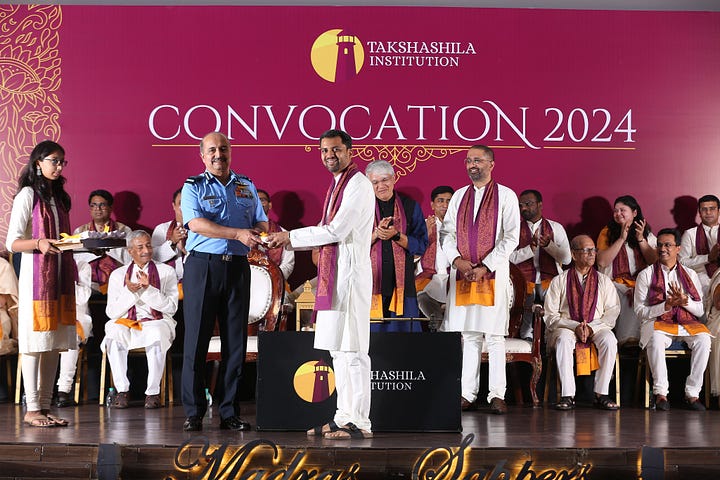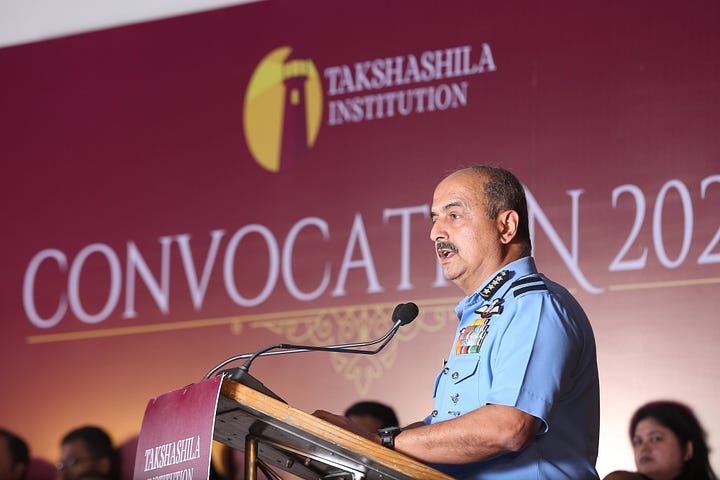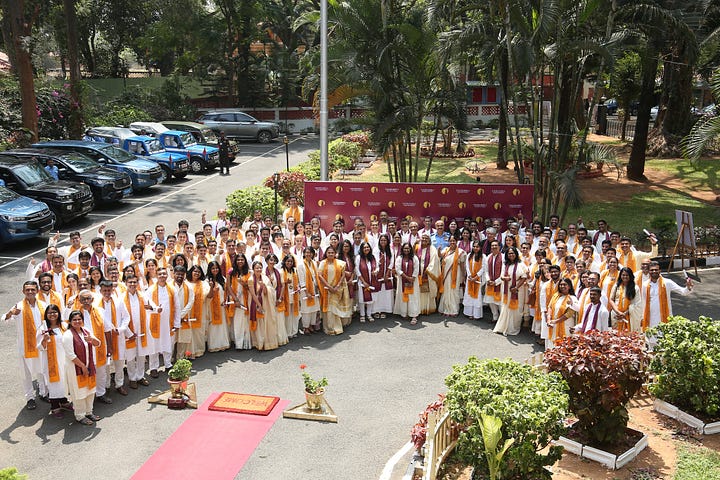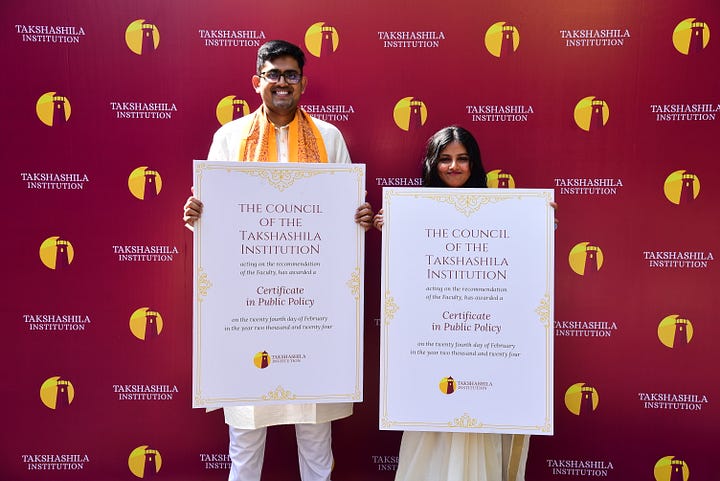Running a Marathon Called Nation Building
Sumo wrestlers start their day early, around 5 am, and exercise for the next five and a half hours. No breaks. They do this day after day for years in the hope that they will qualify for the Makuuchi division in one of the six annual Grand Sumo tournaments. They sacrifice family time, they sacrifice social life, they sacrifice almost everything that a regular teenager takes for granted. They get beaten, they get tired, their bones break, their muscles rip, and they often cry for hours with no shoulder to lean on. Many quit, either in desperation or in disgust.
Of the thousands of Sumo hopefuls in Japan (and Mongolia) each year, only 42 make it to the top division, where they are pitted against each other to fight a Sumo bout that usually lasts for anywhere between five and 10 seconds. Thousands upon thousands of hours of training and sacrifice over a decade for a sub-10-second bout. And then one of them loses. All that training for nothing. Or is it?
Welcome to Public Policy, where you start with the noble goal of nation-building, and you work hour upon hour, day upon day, year upon year, even decade upon decade, only to hit some version of the Great Wall of China — bureaucratic inertia, a judicial chakravyuh, or societal apathy. Do you, or would you, give up?
At Takshashila, it has been mentioned while running every metre of the 42-something-km stretch that this is a marathon. When you reach your destination (phew!), there’s another! It just never stops.
On February 24, 2024, Takshashila’s graduates assembled at the Basantar Auditorium at the sprawling Madras Engineering Group campus in Bengaluru and got to hear that once again. You know, because André Gidé told us once, “Everything that needs to be said has already been said. But since no one was listening, everything must be said again.” Not because we don’t listen but because we need that reassurance, that one bit of positive reinforcement to keep us on track, to not become despondent, and to treat nation-building as a means, not an end.
It was an unusually hot day for Bangalore, but who cares about the 30 degrees Celsius in the sun when you have the cool experience of receiving academic scrolls from giants in civil and military service? Air Chief Marshal Vivek Ram Chaudhari, Lt Gen (Retd) Dr Prakash Menon, Manish Sabharwal (chairman and co-founder of Teamlease Services, India’s largest human capital firm) and Dr M Govinda Rao, one of India’s most respected economists and public finance experts were on hand to award the scrolls to the graduating classes all the way from 2019 onwards.




There were smiles, there were grins, there were hugs, there were happy tears, there was the invocation of the Artha Shastra, there were the goosebumps of the national anthem, and over the scrumptious lunch, there was also a debate over one of India’s greatest public policy questions — should Vegetable Biryani exist? The discussion was sadly inconclusive, but on a positive note, there was no violent disagreement between the two sides. So very anti-Twitter. Sigh!
Around the same time, if you looked carefully around, you’d have seen the beauteous grin of Sowmya Prabhakar, the head of Takshashila’s Corporate Affairs and the conductor who made the 48-piece orchestra called the Convocation Ceremony a memory of a lifetime.
The applications for the next cohort of GCPP and PGP are now open.
Another Book, Another Bestseller
Anupam Manur, Khyati Pathak and Pranay Kotasthane have come together to write a book that promises to be another bestseller from the Takshashila team.
What is a republic? How do markets work? What is the role of society in bringing about change? These may be abstract questions, but they have a concrete impact on all of us.
We, the citizens, live at the intersection of the Indian state, market and society. Yet, many of us are unaware of what these entities stand for, how they interact with each other, and how they touch our lives.
This is where Khyati, Anupam and Pranay come in. They decode public policy in the Indian context in a graphical narrative format relatable to readers of all ages. If you want to be an engaged citizen, aspire to be a positive change-maker, or wish to understand our sociopolitical environment, this book is for you.
The idea of India was an audacious dream. The fulfilment of this dream lies upon We, The Citizens. Order the book here.
You can read a fantastic review of their book in The Hindu here.
Kya Anupam Manur Abhi Tak Gusse Mein Hain?
Last fortnight, we asked an important question: Anupam Manur Ko Gussa Kyon Aata Hai? Anupam is a really nice guy, but he hates it when politicians use their platform to think of and then implement bad policies.
This is why, to reinforce his op-ed on the decision by the state government to fix cab fares in Karnataka, he had a chat with Saurabh Todi in one of the episodes of All Things Policy.
Anupam wrote in moneycontrol.com,
“There’s ridiculous and then, there’s this! In a long list of antagonist policy decisions taken against cab-aggregators by Indian state governments, the latest one by the Karnataka government takes the cake. In a policy that plans to emulate the pricing structure of the city’s autos, the Karnataka government plans to fix prices for all taxis in the state.”
Feel his angst, but in a polite way, here.
Listen to him express his angst, on this episode of All Things Policy:
Let’s Celebrate Science Day Together
OpenTakshashila has a fantastic event coming up on the occasion of National Science Day 2024 (February 28), and you can participate in it. Find out how here.
It is Time to Reimagine Social Security Contributions
Inadequate coverage and financing dogs our social security system. Imagine a person’s bank account designated as a multi-contributor social security (MCSS) account where multiple entities – Central and State governments, employers, employees, philanthropists, charities, companies invoking CSR, and other individuals can contribute directly. These contributions, in turn, could get tax benefits. Imagine you being able to tip your Swiggy delivery person directly into his MCSS account towards his retirement corpus.
Takshashila Research Scholar and software professional Arindam Goswami has a wonderfully explained op-ed on this issue. Read it here.
Three Giants in Three Publications
Lt Gen (Retd) Dr Prakash Menon continues his absolutely fascinating exposition of ideas in The Print.
The kurta and pyjama, Central Asian in origin, have been popular in South Asia for centuries. It entered this month as an add-on to the list of the existing informal dresses in the Indian Naval officers’ messes and sailors’ institutes. Earlier in December, the Navy introduced new epaulettes, which were publicised as being part of PM Modi’s political call for virasat par garv, pride in our heritage, and shedding ghulami ki mansikta, slave mentality.
Read his piece here.
Dr M Govinda Rao, easily one of India’s giants of economic thinking and foresight, has a column in the Deccan Herald on one of the burning political — and policy — issues of our time: devolution of taxes to the states.
He writes:
“There is a lot of discussion that while the residents of the state pay much more in taxes than they get in return, making a political appeal is not rooted either in federal principles nor in the intent of the Constitutional provision for appointing appointing the Finance Commission by the president every five years (or earlier if required under Article 280). The rationale for tax devolution, according to federal principles, is to offset the vertical fiscal imbalance between the revenue powers and expenditure responsibilities of the Union and state governments and to enable every state to provide comparable levels of public services mandated in the Seventh Schedule of the Constitution at comparable revenue effort.”
Read his full piece here.
And then, the third piece. Nitin Pai has a piece out in Mint on why Papua New Guinea’s problems are symbolic of a lot of other issues. He writes,
“Papua New Guinea is currently reeling from the after effects of a volcanic eruption, urban riots, inter-tribal violence, fuel shortages, foreign exchange problems, an impending secession and ongoing parliamentary machinations to replace the prime minister. Its police force — which went on strike last month over a wage dispute — is too small to pacify the warring tribes. Few criminals are arrested and incarceration rates are low, allowing them to operate with impunity. Geopolitically, the country finds itself in a tight spot in the contest between the West and China.”
Find out why Nitin has chosen to write about this group of islands here.
It’s That Man Pranay Kotasthane Again
Pranay expanded on the issue of central monies for states in a masterclass of policy explanation during an episode of Ooru Labs. Listen to him here.
Also, the never-tiring Pranay spoke to Bloomberg about AI is impact on the semiconductor industry. Listen to his views here.
OpenTakshashila is Expanding
That’s all from us this week. Take care!





